A brief history of Franz Beckenbauer
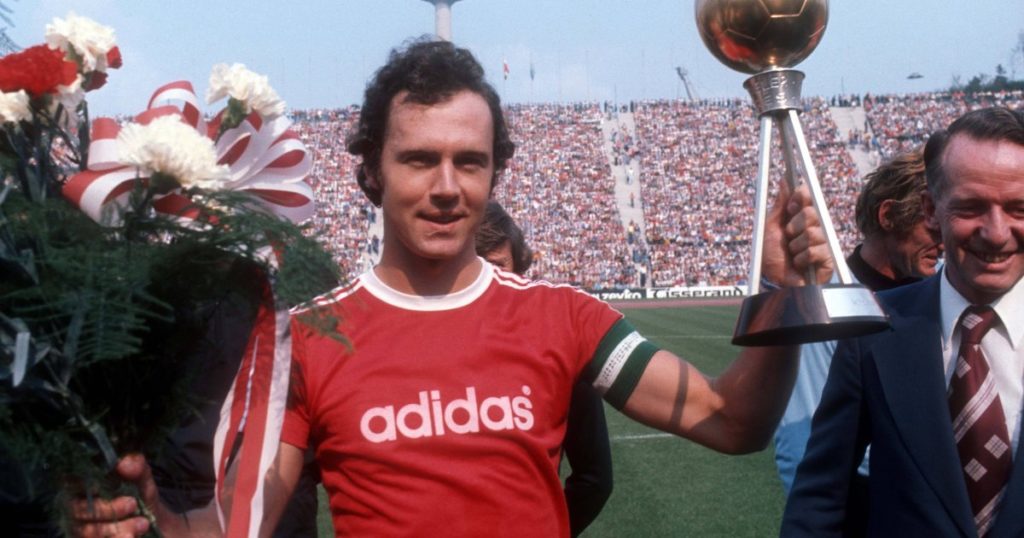
Franz Anton Beckenbauer is a former German professional footballer and manager. Franz was born in the post-war ruins of Munich, Germany. He grew up in Giesing and started playing Football at the age of 9 with SC Munich ’06’s youth team in 1954. Despite his father’s disbelief with Football, young Beckenbauer decided to pursue his love for the game.
As a kid, he started playing as a central striker, and his idol was Fritz Walter, the World Cup winner from 1954. Franz also supported the local team 1860 Munich. In 1959, Franz joined Bayern Munich’s youth team.
In 1963, at the age of 18, Franz Beckenbauer was banned from the West German national youth team by the DFB as it was revealed that his girlfriend was pregnant and he had no intentions of marrying her. He was readmitted only after the interference of the team coach Dettmar Cramer.
Franz Beckenbauer made his first appearance for Bayern Munich in a promotion play-off match in the Bundesliga on 6 June 1964. On that day, he played on the left-wing against FC St. Pauli. In his first season with the Bavarians in Germany’s second division, they won the league and were promoted to the Bundesliga.
After returning to the top-flight, Bayern Munich started to gain some real pace. The won the German Cup in 1966-67 and achieved tremendous success in the Cup Winners’ Cup in 1967. Franz Beckenbauer was given the captaincy for Bayern Munich in 1968. In his first season as the captain, Franz led Bayern to their first league title in the 1968-69 season.
During his time at Bayern, the club triumphed three league titles in a row and three consecutive European Cups. Due to this outstanding achievement in Europe, they were honored to keep the historic trophy permanently. Franz Beckenbauer was at the heart of everything that his club and country teams did on the pitch. The tactical flexibility of Beckenbauer was outstanding, and a lot of attacking moves were initiated by his perfectly weighted passes all the way front the back. During the golden era with Bayern Munich, Beckenbauer also won two major international trophies as his West Germany side’s skipper. They won the 1972 European Championship and 1974 World Cup, with the World Cup played in his homeland.
At the age of 20, Beckenbauer was a part of the West Germany side in the 1966 FIFA World Cup, where Franz’s side lost in the final of the tournament against England in the extra-time. However, despite his side’s defeat in the final, Franz was named in the team of the tournament as well as won the best young player award after registering four goals in the tournament.
In 1977, Beckenbauer accepted a huge bid from New York Cosmos in the North American Soccer League and played there for four seasons. Once again, his impact was incredible, as his side won the Soccer Bowl thrice. In 1980, Beckenbauer returned to Germany and joined Hamburger SV, and they won the Bundesliga title that year. Beckenbauer returned to New York Cosmos in 1983 for his final season before he announced his emotional retirement from professional Football. The German great appeared in 754 competitive matches on the club level. Beckenbauer is the only defender to have won the Ballon d’Or twice as he won it in 1972 and then in 1976 as well.

After his legendary career as a professional footballer, Beckenbauer moved into management, and terrifically his first job was the Head Coach of the West Germany side, where he replaced former manager Jupp Derwall. Beckenbauer took this side all the way to the finals of the 1986 FIFA World Cup, where West Germany lost to Diego Maradona’s Argentina. In the World Cup of 1990, Franz Beckenbauer managed the last German side without East German players before the German reunification. He went to win the final 1-0 against Argentina in a rematch from the previous World Cup final.
Beckenbauer is one of the only three men to have won the World Cup as a player and as a manager. He was also the first man to win the World Cup as a team captain and as a manager. Later, Didier Deschamps joined Beckenbauer in this unique list when he won the World Cup with France in Russia 2018.
Franz Beckenbauer then moved into club management, and his first job was at Olympique de Marseille, where he stayed for a year. Under Beckenbauer’s management, Marseille won the 1990-91 French Championship and finished as the European Cup’s runner-up in the same season.
He later managed Bayern in two separate and brief spells. With one from 28 December 1993 until 30 June 1994 and the other from 29 April 1996 until 30 June. In those brief spells, Beckenbauer won the Bundesliga title in 1994 and the UEFA Cup in 1996. His legacy with Bayern Munich was further enhanced with his successful spell at the club as a manager, winning two major honors.
He was made the President of Bayern Munich in 1994, and he has been credited for much of the success that the club achieved in the following years. The club later decided to change from an association to a limited company; Beckenbauer has been the chairman of the advisory board in 2002. In 2009, Beckenbauer was succeeded by Uli Hoeneß as the President of Bayern Munich.
He also became the vice-president of the German Football Association in 1998. Beckenbauer led the successful bid by Germany to organize the 2006 FIFA World Cup.
Why is Beckenbauer called Der Kaiser?
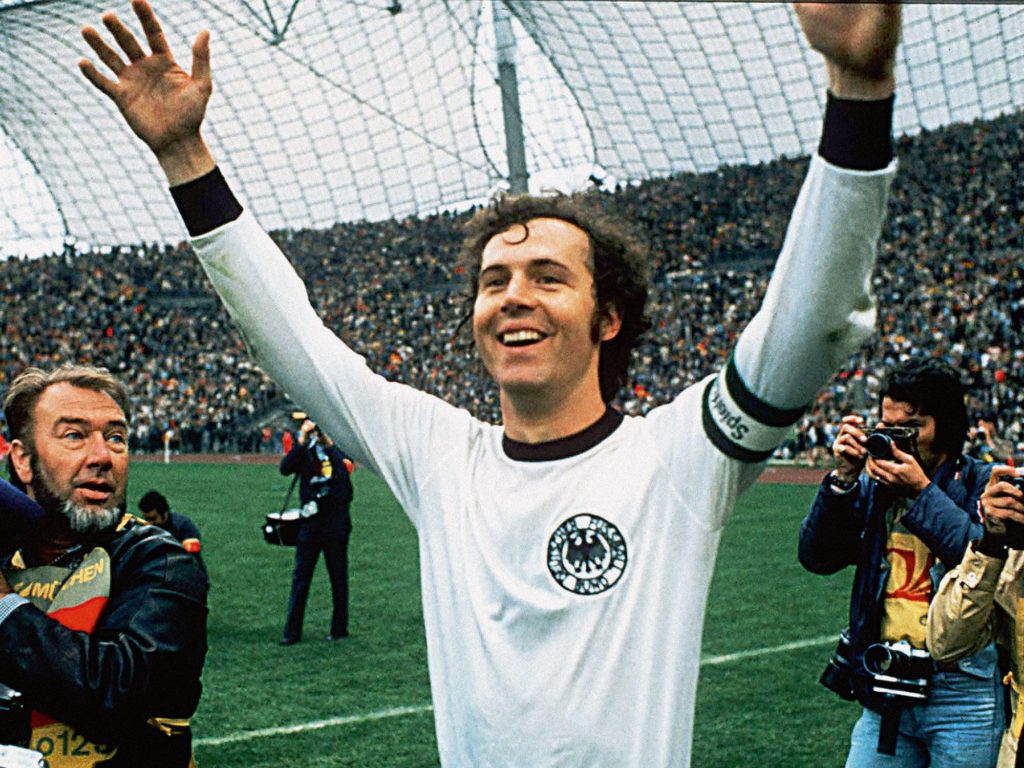
According to a report in the German newspaper, Welt am Sonntag, During a cup final on 14 June 1969, Beckenbauer fouled his opponent Reinhard Libuda of Schalke 04. Beckenbauer went to the opposite part of the pitch and took the ball with him, and then for half a minute, he balanced the ball in front of the upset fans. Schalke 04’s Libuda was known as König von Westfalen (king of Westphalia), and hence the media searched for a more superior tag and created Der Kaiser.
What is Libero and how is it related to Beckenbauer?
First of all, let’s understand the positional factors of a Libero. A Libero is a player who sits behind the defensive line and sweeps everything that comes his way. That’s why this position in England is known as a sweeper. Libero is the Italian word for sweeper who sits deeper than the defensive line. In short, there is not a lot of difference between a Libero and a sweeper; it’s just the difference in the language.
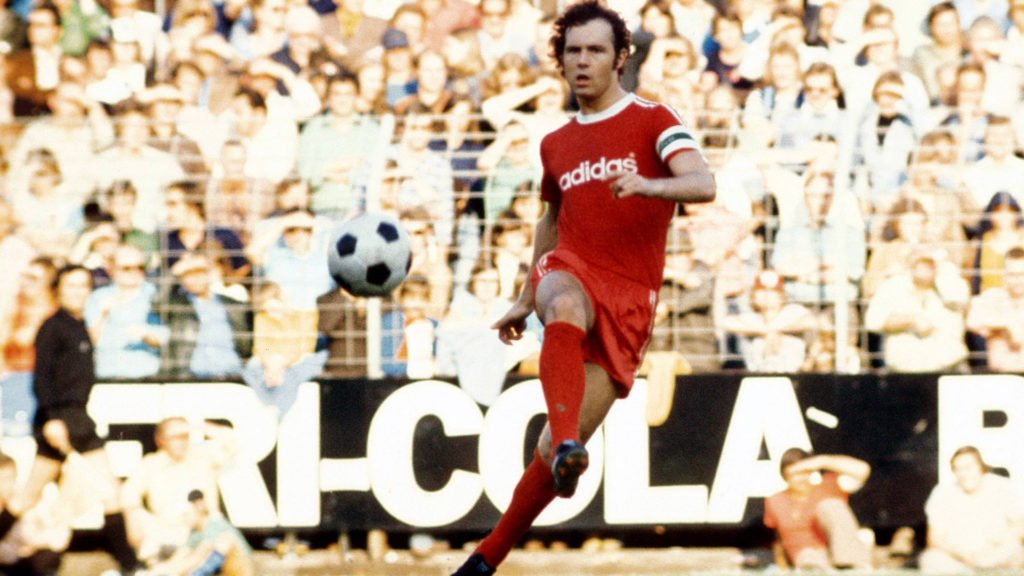
In terms of the role of a libero, there are a few variations in how one can interpret it. Over the years, there have been quite so many successful liberos, but in their own way, some see it as a last line of defense; meanwhile, many take it as the first line of attack.
In the modern era, one of the best examples of a Libero was seen in Antonio Conte’s title-winning Chelsea side. It was David Luiz who made the people remember how significant a libero can be. His technical abilities were good, as was his game reading without the ball. His role to either beat the first line of opposition press by carrying the ball or playing long balls to the wide players. Overall, he played a big part in Chelsea’s success that season by playing a libero role for the majority of the season. Another example is Bayern’s David Alaba, who is playing in a back four but regularly moves up the pitch to assist attacks through creating overloads in the midfield. Another libero example who has been influential behind his side’s success all over the continent.
In Beckenbauer’s time at Bayern, the club used a 4-3-3. This 4-3-3 is not the one that we see in modern Football; instead, it looked more like a 1-3-3-3 with Beckenbauer being the last line. However, his role when his team is in possession was to carry the ball forward or play a clipped ball in behind. In both ways, his role was to step in the midfield while transitioning the ball forward. In this way, the opposition midfield’s man-marking used to get confused, and Franz’s movement was pivotal in accomplishing that. This was possible for Beckenbauer due to his excellent technical ability and game understanding, which allowed him to make things happen offensively.
The role was introduced before Franz Beckenbauer played in it but the German was and is arguably the best player to play in that position.
Franz Beckenbauer broken arm incident
It was the 1970 FIFA World Cup in Mexico where Germany were facing the Italians in the semi-finals of the tournament. Italians were leading the game through an early goal from Roberto Boninsegna. It was the 70th minute when Beckenbauer ended on the wrong of an ugly foul from Italy’s defender Pierluigi Cera. Beckenbauer broke his collarbone and dislocated his shoulder in the process.
However, astonishingly, he refused to leave the field because Germany had already used all of their substitutions. Beckenbauer played the rest of the game with his arm in a sling. Extraordinarily, the game went into extra time, and Germany took a 2-1 lead before an incredible come back from the Italians took place. Italy ended up winning with goals from Tarcisio Burgnich and Gigi Riva, and the game finished 3-2.
This match is also known as the “game of the century.”
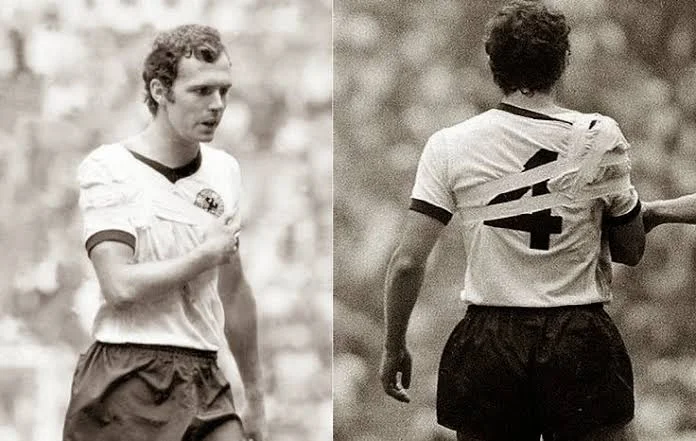
Franz Beckenbauer and the FIFA ban
FIFA Ethics Committee banned Franz Beckenbauer for 90 days from any football-related activity for reportedly refusing to cooperate with an inspection into corruption dealing with the allocation of the FIFA World Cup of 2018 and 2020 in Russia and Qatar, respectively.
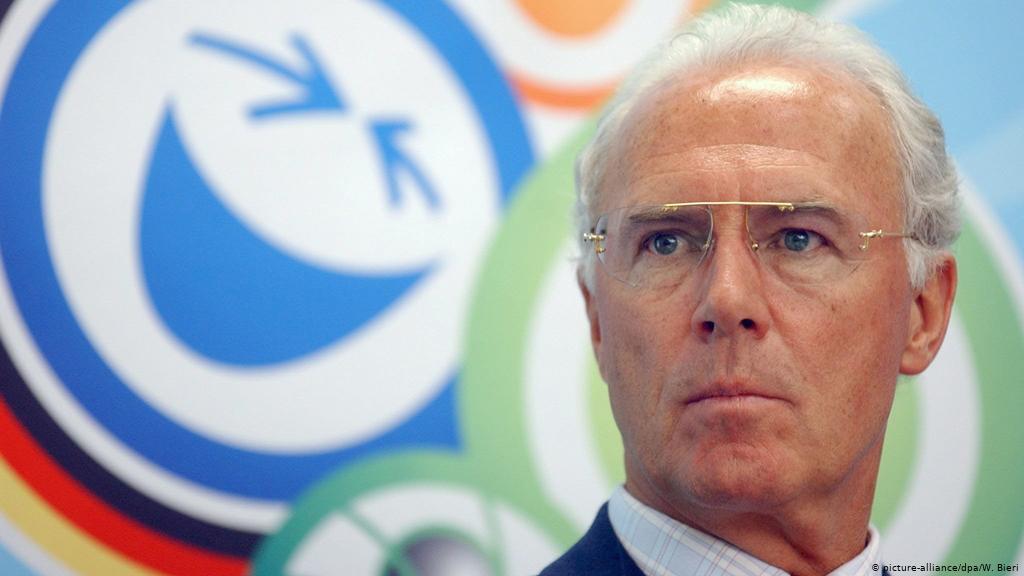
Beckenbauer objected to this ban, and the ban was lifted since he accepted to cooperate in FIFA’s inquiry. The Ethics Committee opened formal proceedings up against Beckenbauer in March 2016 regarding the awarding of the FIFA World Cup 2006 in Germany.
Black Mirror Leaks published email correspondence of Russian member of Parliament Sergey Kapkov in October 2019. In this, Beckenbauer and his adviser, Fedor Radmann, were named as receivers of €3 million for their votes in favor of Russia as the host of the FIFA World Cup 2018.
Franz Beckenbauer track pants by Adidas
Adidas entered the apparel game tracksuit was its inaugural item in collaboration with the German sports star Franz Beckenbauer in 1967. This had a huge impact all over the United States of America, whereby in the 1970s, jogging became a craze, and tracksuits became the uniform of sportspersons on every level. It also stretched its colossal impact on the levels of Suburban Soccer Moms and President Jimmy Carter.
In short, the appearance of Beckenbauer made Adidas a company in apparel that it is today, which until then was a company only known for shoes.
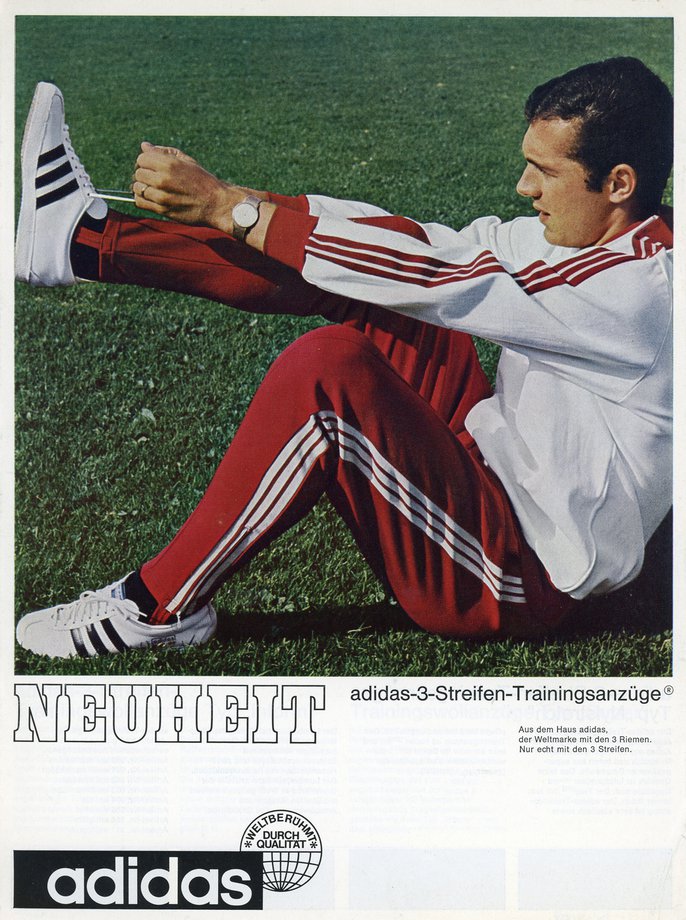
Books on Franz Beckenbauer
BECKENBR SOCCER PW
This book is written by Franz Beckenbauer himself, where the New York Cosmos star explains the rules, strategies, and techniques of soccer with both the player and fan in mind and also offers drills for improving fundamental skills.
Franz Beckenbauer net worth
Franz Beckenbauer has a net worth of $10 million.
Franz Beckenbauer Honors (Player)
Bayern Munich
- Regionalliga Süd: 1964–65
- Bundesliga: 1968–69, 1971–72, 1972–73, 1973–74
- DFB-Pokal: 1965–66, 1967–68, 1968–69, 1970–71
- European Cup: 1973–74, 1974–75, 1975–76
- UEFA Cup Winners’ Cup: 1966–67
- Intercontinental Cup: 1976
Hamburger SV
- Bundesliga: 1981–82
New York Cosmos
- North American Soccer League: 1977, 1978, 1980
West Germany
- FIFA World Cup: 1974
- UEFA European Championship: 1972
Franz Beckenbauer Honors (Manager)
West Germany
- FIFA World Cup: 1990
Marseille
- Ligue 1: 1990–91
Bayern Munich
- Bundesliga: 1993–94
- UEFA Cup: 1995–96
Franz Beckenbauer Honors (Individual)
- Ballon d’Or: 1972, 1976
- Footballer of the Year (Germany): 1966, 1968, 1974, 1976
- kicker Bundesliga Team of the Season: 1965–66, 1966–67, 1967–68, 1968–69, 1969–70, 1970–71, 1971–72, 1972–73, 1973–74, 1974–75, 1975–76, 1976–77
- FIFA World Cup Best Young Player Award: 1966
- FIFA World Cup Bronze Boot: 1966
- FIFA World Cup All-Star Team: 1966, 1970, 1974
- FIFA XI: 1968[52]
- FIFA World Cup Silver Ball: 1974
- NASL Most Valuable Player Award: 1977
- FIFA Order of Merit: 1984
- FIFA World Cup All-Time Team: 1994
- UEFA Euro Team of the Tournament: 1972, 1976
- World Team of the 20th Century: 1998
- FIFA World Cup Dream Team: 2002
- FIFA Centennial Player and Football Personality Award: 2004
- FIFA 100: 2004
- Laureus Lifetime Achievement Award: 2007
- IFFHS Universal Genius of World Football: 2007
- Golden Foot: 2010, as football legend
- Marca Leyenda: 2012
- FIFA Presidential Award: 2012
- UEFA President’s Award: 2012[56]
- World Soccer Greatest XI of all time: 2013
- UEFA Euro All-time XI: 2016
- UEFA Golden Jubilee Poll (2004): second place
- World Soccer (magazine) The greatest players of the 20th century: fourth place
- IFFHS Best European Player 1956–1990
- IFFHS world player of the century: third place
- IFFHS European Player of the century: second place
- IFFHS Legends
- Bayern Munich All-time XI
- Member of Germany’s Sports Hall of Fame
- European Coach of the Year—Sepp Herberger Award: 1990
- World Soccer Awards Manager of the Year: 1990
- World Soccer 29th Greatest Manager of All Time: 2013
- Cross of the Order of Merit of the Federal Republic of Germany: 1976
- Bavarian Order of Merit: 1982
- Cross of Merit 1st Class of the Federal Republic of Germany: 1986
- Honorary Golden Coin of the City of Munich: 1995
- Honorary Doctor of the National Sports Academy: 2004
- Commanders’ Cross of Merit of the Federal Republic of Germany: 2006
- Lower Saxon Merit 1st Class: 2008
- Order of Merit of the State of North-Rhine-Westphalia
Quotes by Franz Beckenbauer
- “It is not the strong one that wins, the one that wins is strong.”
- “Football is one of the world’s best means of communication. It is impartial, apolitical and universal. Football unites people around the world every day. Young or old, players or fans, rich or poor, the game makes everyone equal, stirs the imagination, makes people happy and makes them sad.”
- “As someone who played a team sport, I feel a bit uncomfortable being ranked as an individual so high.”
- “Possession means nothing when the opponent takes its chances.”
- “The most important thing however is the money. What use would it be to us, to have a mighty stadium but a useless team, because we couldn’t afford anything better?”
Quotes on Franz Beckenbauer
Pele
“Beckenbauer was one of the best I ever saw play.”
Eusebio
“He could play in either position (defence or midfield). He had versatility, suppleness, read the game very well, knew how to play, and could get forward and score goals too.”
Sir Bobby Charlton
“Franz was a marvelous distributor of the ball, a great tackler, he always had control of a situation and he never panicked. He was extremely cool and never looked like he was at full stretch. Such a hard player to play against.”
Karl-Heinz Rummenigge
“You’d have to say he was the perfect player.”
Eric Canton
“He was a leader of men, a dominant presence who could bring the ball out with grace and skill. But I tell you this: he broke my heart. As an eight-year-old, I watched the 1974 World Cup Final between West Germany and Holland and I was supporting the Dutch. I cried my eyes out when they lost. I was very sad, but now I understand all about the brilliance of the Kaiser.”
Emmanuel Petit
“A true gentleman of football, who was capable of playing anywhere on the pitch because he was so skillful and read the game so well. Add to that the fact he was class epitomized and was at the top for a long time. Stylish.”
Gerd Muller
“No one ever got past Franz.”
Glenn Hoddle
“Class personified. Calmness, pace, and the ability to effortlessly move into midfield and attack. He had a picture of every player on the pitch. He inspired me as a kid when I saw him play a pass with the inside or then the outside of his foot. The mark of a great player is the ability to be just as effective playing through different eras.”
Ossie Ardiles
“Very graceful, great on the ball, and a great reader of the game. He could also play in midfield and in defence, but for me his best position is as the ‘libero’ at the back, bringing the ball out and linking defence with midfield. He was a great leader too, a positive influence in the dressing room.”
Brian Clough
“I once saw Franz Beckenbauer enter a restaurant and he did it the same way he played football: with class and authority.”
Gerard Pique
“[ . . . ] from the videos I’ve seen, Beckenbauer was incredible. He joined in attacks, had goals in him, and bossed his team. Amazing.”

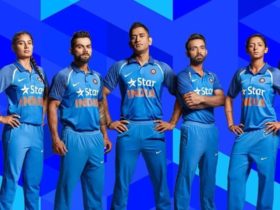

















I hope to see you as a great sports journalist in future.
Thank you, brother. Hope to meet you soon. Jai Shree Ram!